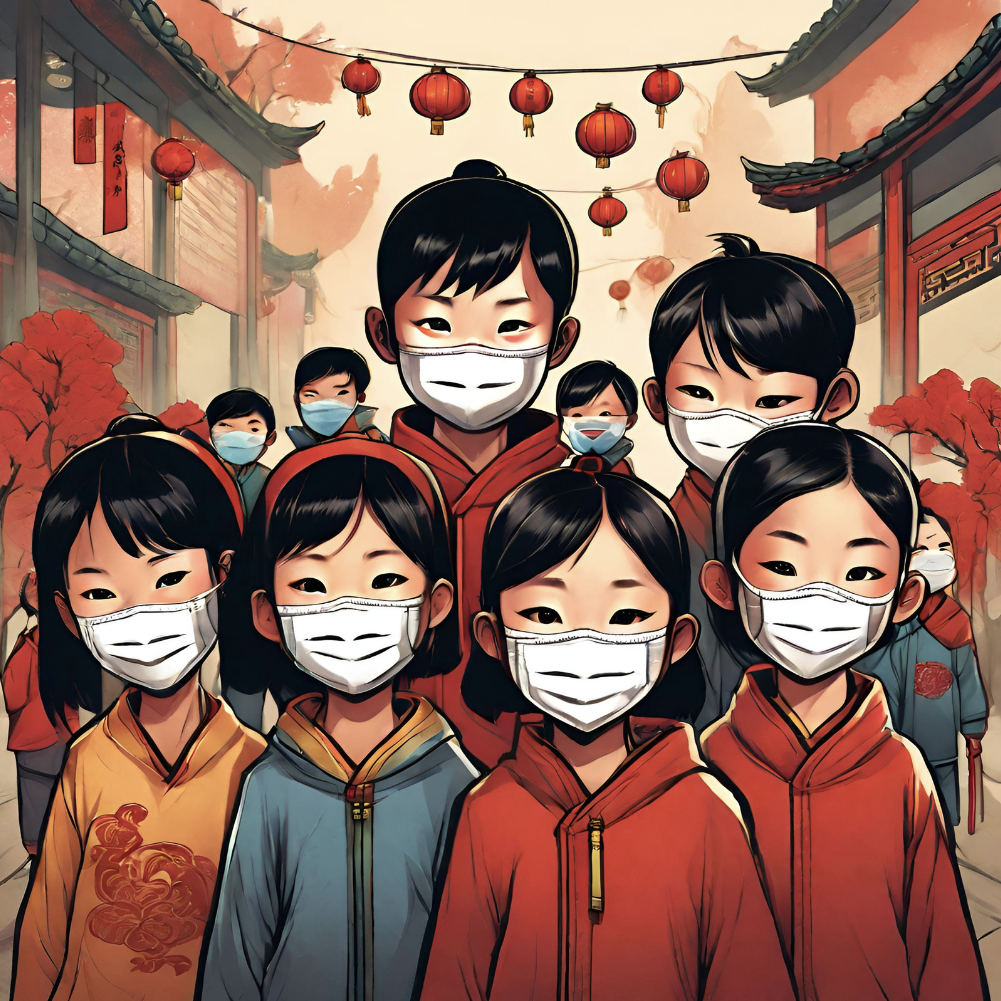Health News & Trends
Rise in Illnesses and Pneumonia Clusters in China
After “clusters” of pneumonia were observed in youths in the country’s north, China found no “unusual or novel pathogens” in respiratory infections.
The World Health Organization (WHO) has requested further information from China in response to complaints of hospital overcrowding.
The lifting of Covid restrictions has been blamed by Chinese officials for an increase in flu-like symptoms this winter.
The WHO is advising Chinese citizens to take preventative steps.
The UN health agency said in a statement on Wednesday that it sought further information on allegations of “clusters of undiagnosed pneumonia in children in northern China” in the media and via ProMed, a worldwide outbreak tracking system.
Pneumonia is a broad medical word for an infection and inflammation of the lungs. It can be caused by a variety of viruses, bacteria, or fungi.
Following the release of the WHO statement, the state-run Xinhua news agency published an item on Thursday in which officials from China’s National Health Commission (NHC) stated that they were paying particular attention to the diagnosis and treatment of children with respiratory infections.
The WHO issued a statement on Thursday stating that China has detected no “unusual or novel pathogens” in respiratory ailments spreading in the country’s north.
Since October, China has recorded an increase in outpatient consultations and hospitalizations of children owing to respiratory syncytial virus, adenovirus, and influenza virus, according to the WHO.
“Some of these increases are earlier in the season than historically experienced, but not unexpected given the lifting of Covid-19 restrictions, as similarly experienced in other countries,” according to the press release.
The World Health Organization (WHO) said it is “closely monitoring the situation and is in close contact with national authorities in China”.
While talks of China and a wave of infection can make people nervous, recalling the Covid-19 pandemic, it’s excellent procedure for the WHO to seek clarification. But there is no way of understanding why this outbreak of illnesses has occurred unless Beijing responds.
It is also fairly uncommon for the WHO to request further information from countries regarding a cluster of illnesses. They do it nearly every day.
On a daily basis, a WHO professional staff sifts through hundreds of media reports and internal surveillance data on circulating diseases from countries. Experts then assess whether more information is required in case it becomes a public health emergency of international concern.
However, it is unusual to make the request for additional information public. Previously, this was done through private channels between the WHO and national health officials.
The UN agency is no doubt concerned that people may be more wary of viruses reported in China in the aftermath of Covid-19. In the aftermath of the pandemic, the WHO is likewise attempting to be more transparent.
The UK’s health security agency (UKHSA) stated it was keeping a careful eye on the situation.
Northern China has recorded a “increase in influenza-like illness” since October, compared to the same period in the previous three years, according to the WHO.
The Chinese NHC reported last week that various respiratory infections were on the rise across the country, including influenza, Covid, mycoplasma pneumoniae (a frequent bacterial infection affecting younger children), and respiratory syncytial virus (RSV).
The increase was attributed by officials to the removal of Covid limitations.
Other nations, like the United Kingdom and the United States, had similar increases in flu-like symptoms when pandemic restrictions were relaxed.
“China is likely experiencing a major wave of childhood respiratory infections now because this is the first winter after their lengthy lockdown,” said Prof Francois Balloux of the University College London Genetics Institute.
Prof Paul Hunter of the University of East Anglia (UEA) stated that there is now insufficient data to establish a definitive diagnosis of what is causing the diseases.
“Overall, this does not sound to me like an epidemic caused by a novel [new] virus,” he continued. If that’s the case, I’d expect to see a lot more infections in adults. The rare illnesses documented in adults point to pre-existing immunity from previous exposure.”
The WHO says it is unclear whether the reported pneumonia outbreak and the overall increase in respiratory diseases reported by Beijing are linked, and has issued a formal request for more information.
It has encouraged Chinese citizens to take basic precautions such as getting vaccinated, wearing masks, and washing their hands.


